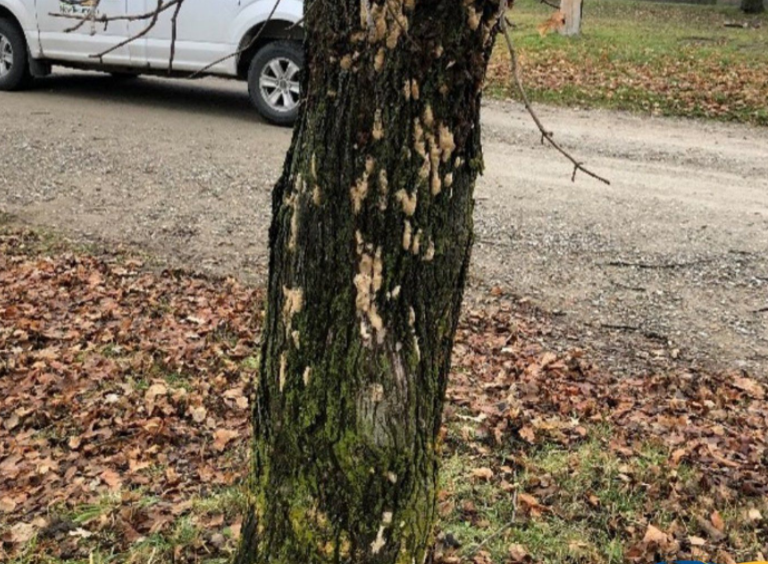If you've noticed fuzzy cocoon-like objects growing vertically on one of your trees, you may have a case of gypsy moths.
The European gypsy moth is a non-native invasive insect that was brought to North America from Europe in the 1860s.
First established in Massachusetts, it had spread to Ontario by 1969.
The larvae feed on a wide range of deciduous and some coniferous trees. However, an oak component is key and is generally required to drive significant outbreaks.
During the larval stage of the moth life cycle in late May and June, the feeding stage may cause substantial defoliation of the trees during peak years.
Populations of this species are cyclical with a population surge every seven to 10 years.
The Ontario Ministry of Natural Resources and Forestry has complete mapping showing areas with gypsy moth defoliation in 2020. The mapping shows a general outbreak across many areas of the province.
Affected deciduous trees may die after several successive years of defoliation. Severe defoliation of coniferous trees may result in a tree dying after just one season.
Peak gypsy moth outbreaks can be a significant nuisance to residents if their trees are affected.
There are several ways you can combat these moths and get rid of them.
Early in the year, and up until mid-April, you can destroy the egg masses on the tree with a horticultural oil that is made for killing gypsy moth eggs.
You shouldn't use any other kind of oil as it could damage the tree.
You can then scrape the eggs off the tree and place in a jar. Kill the eggs by soaking them in soapy water for two days, then dispose of them.
After the caterpillars have hatched in late April, you can put a barrier around the tree using duct tape or something similar. This prevents caterpillars from climbing back up the tree after they have fallen.
You can also use pesticides to control the caterpillars. This method can be used in May and June.
